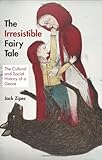This commercial--and program--has made quite a stir this summer. Mermaids: The Body Found: Mermaid Sightings Throughout History originally aired in Australia and premiered here in the US in May. I was aware of it from the commercials--my husband adores Deadliest Catch and somehow I always walked in the room when a commercial for this was airing. It is very spooky, very convincing even in the commercial and I, of course, thought of Orson Wells and his War of the Worlds in passing and then didn't think much about it all due to life's demands. Mermaids, alas, haven't been high on my radar the last several months. However, they loomed large in my brain last summer when I released my Mermaid and Other Water Spirit Tales From Around the World
The unsurprising result of a science fiction piece shot and shown like a documentary is that a small but vocal portion of viewers are convinced that mermaids are real and that government conspiracies have hidden the evidence a la Roswell.
The hoopla--which erupted again when the program reaired in mid-July--even caused the National Oceanic and Atmospheric Administration to issue a press release earlier this summer, No evidence of aquatic humanoids has ever been found:
Mermaids — those half-human, half-fish sirens of the sea — are legendary sea creatures chronicled in maritime cultures since time immemorial. The ancient Greek epic poet Homer wrote of them in The Odyssey. In the ancient Far East, mermaids were the wives of powerful sea-dragons, and served as trusted messengers between their spouses and the emperors on land. The aboriginal people of Australia call mermaids yawkyawks – a name that may refer to their mesmerizing songs.
The belief in mermaids may have arisen at the very dawn of our species. Magical female figures first appear in cave paintings in the late Paleolithic (Stone Age) period some 30,000 years ago, when modern humans gained dominion over the land and, presumably, began to sail the seas. Half-human creatures, called chimeras, also abound in mythology — in addition to mermaids, there were wise centaurs, wild satyrs, and frightful minotaurs, to name but a few.
But are mermaids real? No evidence of aquatic humanoids has ever been found. Why, then, do they occupy the collective unconscious of nearly all seafaring peoples? That’s a question best left to historians, philosophers, and anthropologists.
Articles in the media have abounded from NPR to CNN to USAToday. It's fascinating to read and watch the hype. I'm not surprised. After all, I once knew a girl who was convinced dinosaurs were back after she saw Jurassic Park. Cleverly made film can spark our imaginations and convince us of things that fight our internal logic.
After all of my mermaid research and studies a few years ago, I have to admit I am firmly convinced that mermaids do not exist in our reality. But they are magical, wondrous beings along with their many related iterations across cultures. And why are they so pervasive across those cultures? I don't have answers, only theories, but they boil down to our need for the magical, even the numinous, to explain things we cannot comprehend through our limited perceptions of our world. My book contains many articles about the history of mermaids from mythology to Victorian times which espouse a similar theory overall.
I haven't seen the mocumentary yet but from my reading, it appears to pull many of the same stories, even imagery, to tell about the history of mermaid folklore. That is is presented as scientific theory disguised as fact is unfortunate for while it gets the sensation and press, it also weakens the integrity of the work as a whole for it appears to be a decent visual history of mermaid stories and theories. But then the makers probably don't care as they get to increase their bank accounts.
You can see more clips of the Mermaids "event" at Animal Planet here. It doesn't appear to have a slated DVD release yet.






























